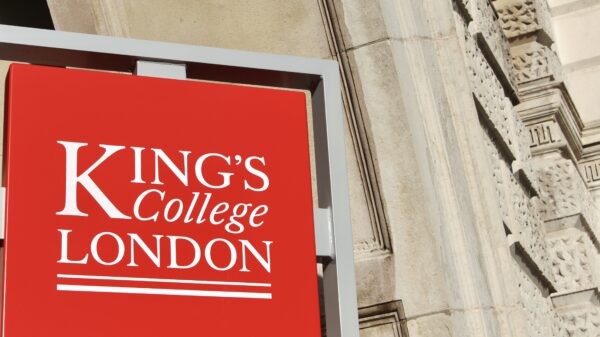Roar Editor-in-Chief Fintan Hogan argues that the system is stacked against the younger generation in an article originally published in KCL Politics’ Dialogue magazine.
As long ago as 1965, The Who were lambasting the people who “try to put us down”. In 1979, Pink Floyd lamented that we were “just another brick in the wall”. “We are strange in our worlds”, noted Supergrass in 1995. Nothing ever changes. Death, taxes and angsty teens.
We aren’t special. Generation Z (born 1997-2012) are just the latest in a long line of people who don’t like the politics of their parents or grandparents. Since the young don’t have much social or financial investment in society, they tend to look fonder on progressive politics. Why not smash it up and start again? Build something better? But then the wage slip, the mortgage and the cost of kids herald in a strong aversion for anything short of laissez-faire. Rose tinted glasses smashed by the taxman.
Except maybe we are special. Young people are still disaffected by the decisions of elder generations – that much remains true. Yet these decisions, more than ever, are structural rather than just political. Instead of old and young bickering about just how redistributive the welfare state should be, on global, national and local levels, older Britons have pulled the plug on their successors.
It’s Different This Time
Our period is distinct for two reasons. For one, inter-generational issues are more
pertinent than at any other time. Age has become the headline predictor of voting
intention (YouGov, 2019). Class has not quite been kicked off stage, but it’s certainly been relegated to the role of backing singer. Secondly, we are on the brink of systemic change. Fewer and fewer people have any skin in the game. While the recent track-record of left-wing politics in Britain has been far from stellar, this has been more through its poor custodians and bad luck over anything else. This won’t last. The scales are slowly tipping against conservatism.
The last forty years have built a society which has entrenched inequality at the highest level for half a century. The trend of gradual post-war redistribution has been halted and even reversed. The cycle of firebrand youth to old cynic relies on people getting their piece of the pie and then pulling up the ladder behind them. Yet for more and more people, the ladder simply isn’t there in the first place. Young people are still starting off on the left, but they’re not being pulled to the right any more. There is ample reason to believe that these preferences are becoming irreconcilably ‘baked- in’.
This trend is clearly not universal. The young can still be privileged – King’s College London is ample evidence of that. ‘Culture war’ issues will pull some people into conservative circles. Ideologues will persist. This notwithstanding, the political landscape on the whole is shifting as the centre of gravity swings left. The Overton window is slamming shut on this economic agenda.
The New Reality
Homeownership among 25-34 year olds has plummeted from 50% as recently as
1990 down to 25% in 2017. In the last three decades, young adults have become
half as likely to own their own home. In that same period, homeownership among the over-65s has rocketed from 50% to 75%. This does not even touch upon the
average value of homes, which would likely distort this inequality yet further.
Millennials are four times more likely to be renting at age 30 than Baby Boomers
were. Younger generations simply cannot get on the housing ladder in the same way that their parents could.
The housing crisis coincides with a general crunch in economic growth. Stagnation
has the biggest impact on those looking to join the job market, those vulnerable to
lay-offs and otherwise insecure workers: i.e. the young. The 2008 economic crisis
shattered “the expectation of each generation doing significantly better than their
predecessors”. The recovery was the slowest of any recession bounce-back for a
century. No-one born after 1990 has enjoyed any economic stability. In fact, we’ve
carried the costs of austerity without the dividends. School spending per pupil, for
example, cratered after 2010, as did public transport funding. The old – with money, degrees and car keys in their pockets – have suffered comparatively little.
According to The World Bank, COVID-19 risks creating a ‘lost generation’; but we were already well off-route before the pandemic hit. If we imagine that our economic structure should provide growth, rising living standards or even casual redistribution, then it is simply no longer fit for purpose.
This is undermining the fragile post-war consensus. The shrinking working population is being asked to pick up the tab for the welfare of an aging, ailing country. Just maintaining current service levels would need spending to rise by over £80 billion by 2040, just while Britain’s dependency ratio creeps upwards. The bill gets passed down the generations by tax rises and further borrowing. Japan’s well- known aging population issue is a harbinger of what all European countries should expect to face.
Another obvious ‘new’ intergenerational issue is climate change. Admittedly, ‘new’ is somewhat arbitrary. The Baby Boomers had the hippie generation and authors like Rachel Carson, animating huge numbers of environmentally conscious young adults. However, the environmental issues we face in the twenty-first century read like the science fiction of the 1960s. Rising sea levels alone could cause over $10 trillion a year of damage by 2100. Arctic ice is at its smallest in over a thousand years. At 2 degrees of warming, 18% of terrestrial species will likely face a very high risk of extinction. Four continents face severe food security risks. By 2100, the cost of climate change in the UK is expected to hit 7.4% of GDP; that’s the same share o GDP as it takes to run the entire NHS! Climate change will be expensive, unpredictable and deadly. This is the world that Gen Z will inherit.
No other generation has had to deal with ecological issues of this magnitude – and our current elite have completely failed to adapt to this new reality. Every time that over-50s vote for politicians who downplay, ignore or lambast climate science, billions of pounds are taken out of the pockets of their own children and grandchildren. Young people, yet again, will have to pay the price for this, long after our current politicians are dead. They are angry about this, with one author and campaigner has equating the situation to an “intergenerational war”. Unlike other age politics issues, there’s no way that millennials or Gen Z can ‘grow out of it’. Every person who expects to see 2050 has a fundamental difference with everyone who does not.
We Won’t Grow Out Of It
This is why age has become one of the most reliable demographic factors in predicting voting intention. The young are turned off by conservatism as never before. Baby Boomer and Generation X Brits tended to be 5% less conservative than the national average at age 35, but 5% more conservative by age 70. Yet millennials have completely overhauled this trend, actually becoming less conservative with age. As the Financial Times points out, this runs against the expected trend since “millennials have developed different values to previous generations, shaped by experiences unique to them, and they do not feel conservatives share these”.
Our generation is yet to hit the ballot box with gusto. Gen Z are even younger, poorer and angrier than millennials. Stung by “capitalism without capital”, these two generations show little of the inclination to shuffle rightwards that their parents and grandparents did. Intergenerational politics is no longer defined by ‘age effects’ – people slowly losing their progressive tendencies. We are now led by ‘cohort effects’; generational inequality, the climate crisis, the lasting effects of austerity and Brexit have all posed distinct new frames onto our politics. While a young socialist once became a middle-aged conservative, a young have-not now becomes a middle-aged have-not.
A Matter Of Time…
Time is ticking on conservative politics. The ranks of the wealthy and satisfied are not being replenished at the necessary rate to keep it alive. We are already seeing this play out. Boris Johnson’s campaign ran more on culture issues than a cohesive economic agenda. Jeremy Corbyn was a genuine radical in a country renowned for scepticism but got within 2.3% of beating Theresa May in 2017. Rishi Sunak’s biggest asset is his competent centrism and inoffensive nature, upsetting the right of his party. He’s a Conservative, not a conservative; a Tory without teeth. Economic conservatism has already died a quiet death in Whitehall.
While we can still enjoy the classic teen rebel tracks, Gen Z’s situation is genuinely unique. The issues are structural; the obstacles are unprecedented in the post-war era. Thankfully enough, we are in a democracy. Generational inequality, climate catastrophe and desperately slow increases in the standard of living will not be tolerated when those who are affected outnumber those who are invested in the status quo.
Our politicians will soon realise that it’s no longer politically possible to allow the old to pull up the drawbridge. This is not to say that higher taxes and state intervention are ’the right thing to do’, or even that they will actually fix these problems, but what we’ve been trying up until now has run up against a wall. I’m simply predicting an appetite for change
Alas comrade, the revolution is not around the corner. Reform will continue to be gradual – Starmer is a lawyer, not a Leninist. But when the system is built up against the majority, people will slowly get fed up. Doubtless Pink Floyd will be proud when Gen Z takes it down brick by brick.

















